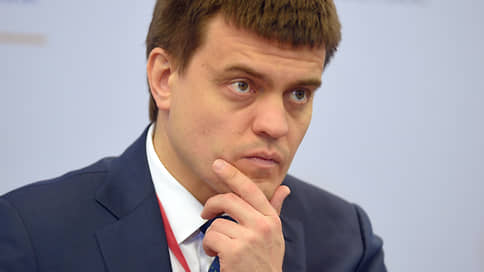Krasnoyarsk Territory will reduce the number of municipalities from 472 to 39

On May 15, deputies of the Legislative Assembly of the Krasnoyarsk Territory approved in the second, final reading the reform of the regional local government system (MSU). It provides for a radical (from 472 to 39) reduction in the number of municipalities and the transition to the “governor” model of the election of their chapters. The initiative caused a protest by local residents, dissatisfied with the abolition of their municipalities, but this did not affect the final result.
The reform, initiated by Governor Mikhail Kotyukov, puts into life the provisions of the new federal law, which gives the regional authorities the right to move from a two -level MSU system to a single -level one with simultaneous enlargement of municipalities. Now in the Krasnoyarsk Territory 472 municipalities, including 17 urban and 12 municipal districts, 32 municipal districts, as well as 389 rural and 22 urban settlements. June 19, after the law entered into force, there will be only 39: 6 urban districts and 33 municipal. The procedure for selecting municipal chapters will also change: they will be elected by deputies only from among the candidates proposed by the governor.
Recall that the bill was submitted to the regional parliament without preliminary discussion, which caused the discontent of the Krasnoyarsk residents, whose municipalities would be abolished during the reform (see “Kommersant” of April 17). After the first reading, they began to massively record video statements with complaints of the president (videos on social networks, in particular, were published by residents of the partisan, Mansky, Sukhobuzim, Taseevsky and other areas) and go to rallies. The post of Mikhail Kotyukov in the Telegram channel dedicated to the reform scored more than 2 thousand comments and over 100 thousand dyslaists.
However, this almost did not affect the result. On May 15, the chairman of the parliamentary committee on state system, legislation and MSU Galina Amplogova said that by the second reading, the bill underwent only minor changes. In particular, the governor proposed to give a number of newly formed municipal formations the name “taking into account the preservation of historical identity”, as well as adjust the procedure for the formation of some district councils. A few more amendments to the head of the region affected the nuances of organizing work on the ground in the transition period for which a year is allocated.
To make conceptual changes to the bill and take into account the opinion of the residents of a number of municipalities by the head of the LDPR faction Alexei Boykov, but all nine of his proposals were rejected. “Billions of rubles will go to reform. These are thousands of seals, signs, signs, certificates, a change in a huge number of laws, decisions and orders. Which of this will be economy, neither I nor the inhabitants of the region understand, ”Liberal Democrat stated with regret. The Communists also spoke out against the reform. “For some reason, the name of the partisan district disappeared by the second reading. We thereby deprive ourselves of historical memory, ”said Alexander Ratakhin, deputy head of the Communist Party faction, recalling that“ the residents of the district defeated the Kolchakites during the civil war. ”
Other political forces supported the governor’s initiative. Thus, the United Russia Yegor Vasiliev called the reform timely, since the model of administrative-territorial administration proposed by Mikhail Kotyukov will « be more suitable for the new system of budgeting, financial planning and goal-setting. » The current system, according to him, is an « aquarium in which small goldfish are adjacent to sea giants. » “Changes pursue two goals: to reduce this heterogeneity of our municipal formations and build a clear system of state and municipal administration in Army,” summarized Mr. Vasiliev.
Before voting, the speaker of the Legislative Alek Aleksey Dodatko (« United Russia ») warned colleagues against « excessive politicization of the topic. » As a result, 36 deputies supported the bill, six were opposed.
Krasnoyarsk political scientist Sergei Komaritsyn calls the reform of the MSU system without taking into account the opinions of residents with a dangerous precedent. “Of course, there will be no large, especially organized protest. But discontent in abolished municipalities, including in important social groups for the authorities itself, will remain, and this will be one way or another, ”the expert warns.








